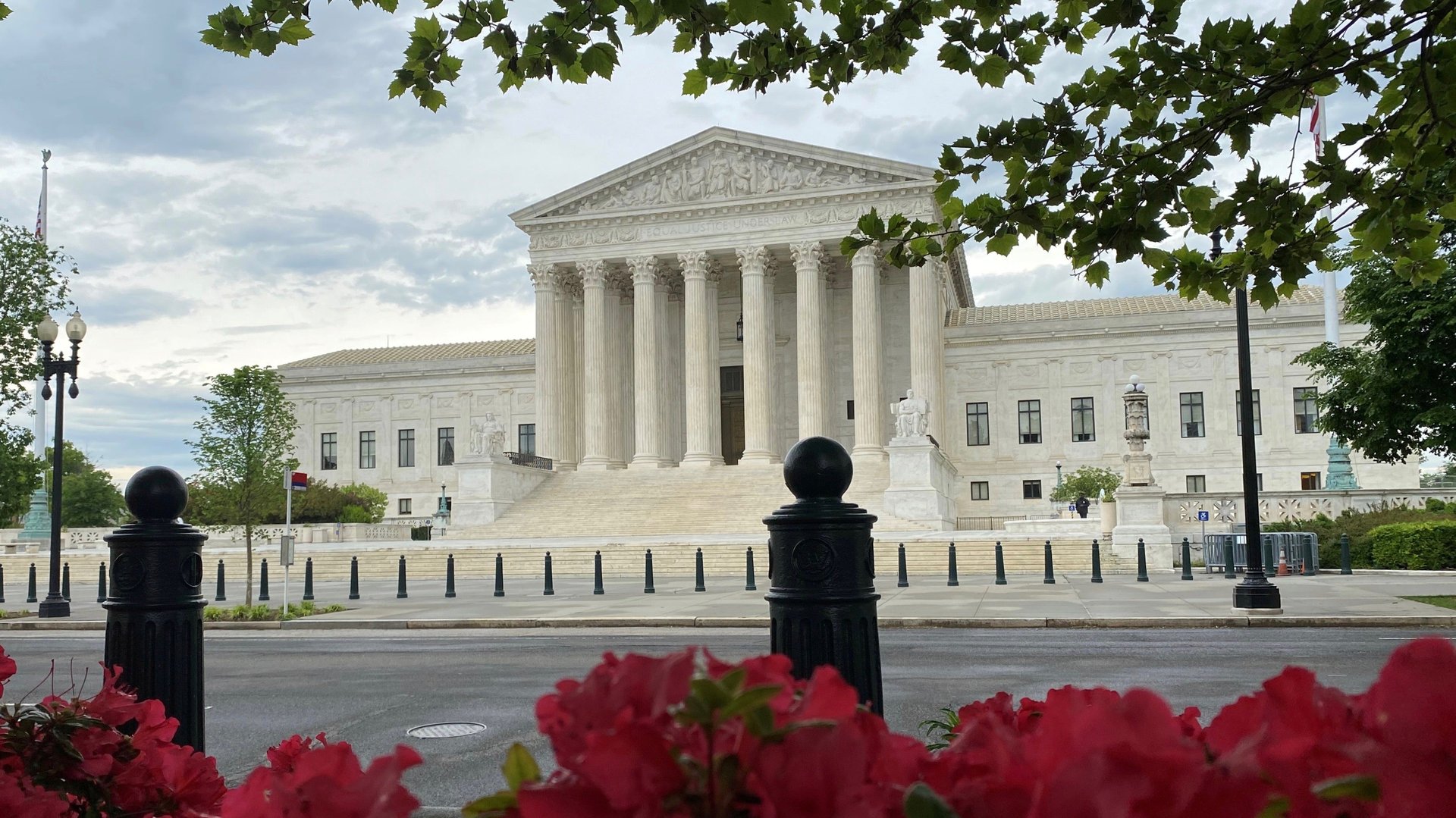Will the US Supreme Court let Trump keep his many secrets?
There is one unexpected upside to the coronavirus crisis, a delicious irony amid all the pandemic’s tragedies. Three of the biggest cases of the US Supreme Court term—matters about president Donald Trump’s top-secret taxes and financial records—will be livestreamed for all to hear on May 12.


There is one unexpected upside to the coronavirus crisis, a delicious irony amid all the pandemic’s tragedies. Three of the biggest cases of the US Supreme Court term—matters about president Donald Trump’s top-secret taxes and financial records—will be livestreamed for all to hear on May 12.
It promises to be the ultimate civics lesson, a constitutional law lecture for the ages aired to the humble masses. Here’s what you need to know to be prepared.
This president, though vociferous on Twitter, is highly circumspect when it comes to records. Unlike any other chief executive in recent history, he has not disclosed his taxes. That makes it virtually impossible for congressional watchdogs to confirm conflicts of interest between policy efforts and the president’s personal business endeavors. Trump has also intervened when prosecutors and government oversight committees demand financial records from his business associates, as in the cases before the high court.
The justices will have to decide if the president is right that he’s entitled to extraordinary secrecy by virtue of his office.
The records requests in question arose in three cases and two contexts—a New York grand jury investigation into alleged hush-money payoffs made on Trump’s behalf before the 2016 elections, and congressional ethics committee investigations into Trump businesses. In all three matters, subpoenas were issued to Trump’s associates, not to the president directly. Trump intervened, and the institutions with the records say they will release them if so ordered by the court.
So far, lower courts have not found the president’s records are as special as he claims and the high court’s precedent doesn’t necessarily support the president either.
With all due respect
For example, president Richard Nixon’s records weren’t kept secret in 1974. A special prosecutor investigating Watergate subpoenaed recordings from the president’s aides, which Nixon tried to block. The Supreme Court conceded in Unites States v. Nixon that the justices do not “proceed against the president as against an ordinary individual,” and must extend him the “high degree of respect.” But they also decided the president was not above the law and could not block the prosecutor. Nixon quit the presidency thereafter, not even waiting for a Senate impeachment trial.
Similarly, In Clinton v. Jones in 1997, Bill Clinton was subpoenaed for a federal civil suit. The high court again ruled that presidents were not immune and Clinton was subject to the subpoena just like any other citizen.
Still, those cases left open the possibility that there may be situations when a subpoena involving the chief executive’s records might be barred. Trump and his administration say the pending matters fall into that category because they are not designed to accomplish any legitimate end, just to bug the president and interfere with his work.
The Justice Department says it’s not just protecting Trump. It’s standing up for the right of all presidents to maintain their ability to operate, unmolested by vindictive, politically-motivated harassment. Essentially, it argues that these subpoenas and investigations are designed to undermine Trump’s presidency, and in the big picture allowing them means small-time political operatives will continually pressure presidents, making it tough for the chief executive to do the job of running the country.
The Trump administration says the Nixon case was different from the grand jury investigation by New York prosecutor Cyrus Vance. Watergate was a legitimate federal investigation. But Vance’s inquiry into Trump’s taxes is just badgering the president. Likewise, the congressional committees are overreaching when subpoenaing Trump’s accountants and bankers because they are just claiming to be interested in ethics when their true intent is to hamper the president.
More secrecy please
The Trump administration doesn’t like sharing. It’s notable that the Justice Department just brought yet another case about secret dealings to the high court late last week. It applied for an emergency stay, barring the release of records from the Robert Mueller investigation, arguing that these should be shielded while the administration appeals a lower court’s decision on the publication. That request was promptly granted by chief justice John Roberts.
Granting the temporary stay pending appeal isn’t a substantive affirmation of the administration’s arguments, just proof the high court will keep on entertaining an extraordinary number of emergency requests for help from a president who is otherwise intent on keeping his plays very close to the chest.
In February, Sonia Sotomayor lashed out at some of her colleagues on the bench in a dissent for letting the president’s pleas clog what’s known as “the shadow docket.” She wrote:
Claiming one emergency after another, the Government has recently sought stays in an unprecedented number of cases, demanding immediate attention and consuming limited Court resources in each. And with each successive application, of course, its cries of urgency ring increasingly hollow…Perhaps most troubleingly, the Court’s recent behavior on stay applications has benefited one litigant over all others.
A historic occasion
But it turns out that sometimes the people score a win too. No one could have predicted when the Trump cases were delayed in March that Americans would end up getting a historic lesson instead. The court only announced its plan to air arguments live—for the first time ever—in April, and the first of these unprecedented debates were heard last week.
It was worth the wait. Tuning in to the hearings has been a treat. Plus, it’s extra sweet that controversial cases about executive secrecy are being aired live at unprecedentedly transparent Supreme Court proceedings. Even if no one ever sees Trump’s taxes, we will have had a chance to hear the justices live and in action, which would never have happened under normal circumstances.